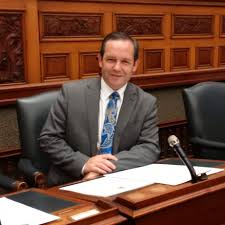Government-business MOU aimed at establishing B.C. as low-carbon economy leader
The Voice of Canada News:
British Columbia’s government and business leaders have signed a first-of-its-kind agreement to establish B.C. as a world leader in delivering low-carbon goods and services to domestic and global markets.
This commitment comes through a memorandum of understanding (MOU) that has been signed and released by government and the Business Council of British Columbia (BCBC). Under the MOU, the parties will work together to develop an industrial strategy that transitions B.C. into a low-carbon economy leader. The final strategy will be consistent with both parties’ commitment to advancing reconciliation through new economic opportunities for Indigenous peoples.
“B.C. is uniquely positioned as a destination and supplier of choice for industry looking to drive low-carbon economic growth and opportunities,” said Premier John Horgan. “Working together, we can meet the increasing global demand for products, services and solutions that reduce air pollution and protect our climate.”
“This joint initiative will enable British Columbia industries to become competitive global suppliers of lower-carbon commodities, goods and innovations that will reduce climate change impacts in emissions-intensive countries abroad,” said Greg D’Avignon, president and chief executive officer, Business Council of British Columbia. “The low-carbon strategy will also contribute to a strong, competitive economy that can attract investment to B.C. and further reduce our own emissions intensity.”
The strategy developed through the MOU will chart a path forward for the Province and BCBC to collaborate on best ways to boost business investment and build a strong, identifiable low-carbon brand. Key to that is leveraging the province’s assets, including B.C.’s abundance of clean electricity and its strategic location on the Pacific coast.
“This MOU is intended to unlock British Columbia’s full economic potential in a world that’s rapidly embracing urgent climate action and eager for low-carbon solutions in the form of products, technologies and energy inputs,” Horgan said. “This collaboration between business and government will enhance British Columbia’s competitive advantages, avoid carbon leakage and help us advance this generational opportunity.”
“We know a healthier, cleaner environment and a strong economy can go hand in hand,” said George Heyman, Minister of Environment and Climate Change Strategy. “The MOU will help us focus our work on the shared objectives of reducing harmful emissions while advancing B.C.’s economic competitiveness.”
The MOU recognizes that government’s soon-to-be-announced climate strategy – intended to reduce B.C.’s domestic climate impacts and provide for the prosperity of the people, businesses and communities of B.C. – is a foundational component of the proposed low-carbon industrial strategy.
In recognizing the potential challenges that come with significant transition, the MOU commits both sides to making sure energy intensive, trade-exposed industries remain competitive with jurisdictions that do not put a price on carbon pollution.




